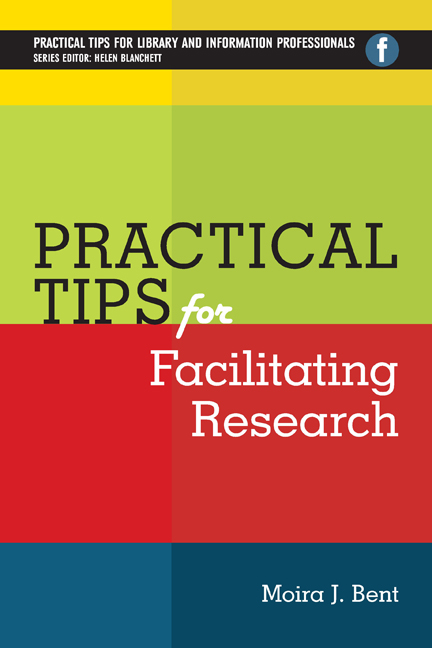Book contents
- Frontmatter
- Contents
- List of figures
- Series Editor's introduction
- Acknowledgements
- 1 Introduction
- 2 Section summaries
- 3 Landscapes and models
- 4 Structures and strategies
- 5 Places and spaces
- 6 Library staff roles
- 7 Collections
- 8 Specific interventions in the research process or lifecycle
- 9 Teaching approaches
- 10 Information literacy skills workshops and programmes
- 11 Bibliography
- Index
10 - Information literacy skills workshops and programmes
Published online by Cambridge University Press: 08 June 2018
- Frontmatter
- Contents
- List of figures
- Series Editor's introduction
- Acknowledgements
- 1 Introduction
- 2 Section summaries
- 3 Landscapes and models
- 4 Structures and strategies
- 5 Places and spaces
- 6 Library staff roles
- 7 Collections
- 8 Specific interventions in the research process or lifecycle
- 9 Teaching approaches
- 10 Information literacy skills workshops and programmes
- 11 Bibliography
- Index
Summary
Holistic information literacy programmes for researchers
IN RECENT YEARS, many university libraries have developed comprehensive information literacy offerings for undergraduate students, traditionally focusing on the immediate skills needed to exploit the library's resources. Often such programmes can be replicated, albeit in a little more depth, at postgraduate level and it may be that this is all that is possible in some circumstances.
However, ideally for the research community, a much more in-depth approach is needed. Researchers should be aware of the resources available to them: in particular, that there is more to life than Google Scholar, however useful a tool that is! In addition, researchers need to develop a more holistic understanding of the information environment and of their roles and responsibilities within it. This will enable them to construct robust search strategies and to really understand how to interpret and manipulate the results. This kind of approach is essential for any form of systematic review, a research technique that is becoming increasingly popular in applied and social sciences and engineering as well as in medical sciences (see Tips 8.7–8.9).
Librarians, therefore have a key role to play in developing this awareness, helping researchers to cross a ‘threshold of understanding’ about their information environment (see Tip 3.5 on threshold concepts). Although teaching the skills (we might think of this as training) is still essential, at this level it does need to be reinforced with a less tangible discourse (which we might think of as education) about the information landscape. This is not an easy task; library staff without much experience of teaching may feel challenged by such an intangible learning outcome and researchers, focused on a just-in-time, need-to-know requirement, may not perceive the need to acquire it at all. It's easier to ignore it and focus on developing training programmes that, on the surface, meet everyone's needs.
Nevertheless, there are tools that can help library staff who wish to develop more comprehensive information literacy offerings for researchers. The ACRL Framework (Association of College and Research Libraries, 2015) and the SCONUL Seven Pillars model (Bent and Stubbings, 2011) both provide a scaffold against which a more rounded programme can be set.
- Type
- Chapter
- Information
- Practical Tips for Facilitating Research , pp. 205 - 244Publisher: FacetPrint publication year: 2016



